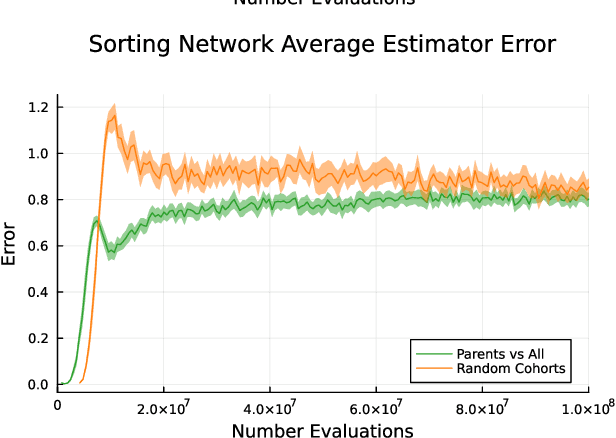Phylogeny-Informed Interaction Estimation Accelerates Co-Evolutionary Learning
Paper and Code
Apr 09, 2024



Co-evolution is a powerful problem-solving approach. However, fitness evaluation in co-evolutionary algorithms can be computationally expensive, as the quality of an individual in one population is defined by its interactions with many (or all) members of one or more other populations. To accelerate co-evolutionary systems, we introduce phylogeny-informed interaction estimation, which uses runtime phylogenetic analysis to estimate interaction outcomes between individuals based on how their relatives performed against each other. We test our interaction estimation method with three distinct co-evolutionary systems: two systems focused on measuring problem-solving success and one focused on measuring evolutionary open-endedness. We find that phylogeny-informed estimation can substantially reduce the computation required to solve problems, particularly at the beginning of long-term evolutionary runs. Additionally, we find that our estimation method initially jump-starts the evolution of neural complexity in our open-ended domain, but estimation-free systems eventually "catch-up" if given enough time. More broadly, continued refinements to these phylogeny-informed interaction estimation methods offers a promising path to reducing the computational cost of running co-evolutionary systems while maintaining their open-endedness.
 Add to Chrome
Add to Chrome Add to Firefox
Add to Firefox Add to Edge
Add to Edge